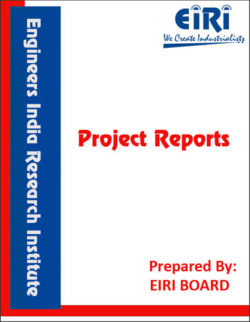MANGO PULP
The project report includes Present Market Position and Expected Future Demand, Market Size, Statistics, Trends, SWOT Analysis and Forecasts. Report provides a comprehensive analysis from industry covering detailed reporting and evaluates the position of the industry by providing insights to the SWOT analysis of the industry.
We can prepare PROJECT REPORT as per your INVESTMENT PLAN for BANK LOAN REQUIREMENT and INDUSTRY ANALYSIS. All reports are prepared by highly qualified consultants and verified by a panel of experts.
Have Query? Click Here to Chat
Industry Expert is Online, Chat with him for more detail.

MANGO PROCESSING & CANNING (MANGO PULP)
[CODE NO.0600]
India is the home of mangoes. A large number of varieties are found in almost all parts of the country. According to statistics collected by the Fruit Development Adviser, Government of India, out of the total fruit acreage of 12,79,000 ha mangoes alone covered 8,19,000 ha in 1948-49 i.e. nearly 70 per cent of total area under fruits. Uttar Pradesh, Tamil Nadu, Karnataka, Bihar and West Bengal lead in mango growing.
Among the numerous varieties, `Safaida’ and `Duschri’ of U.P. `Alphonso’ of Ratnagiri, `Badami’ of Mysore, `Benishan’ of East Coast, and `Raspuri’ `Neelam’ and `Mulgoa’ of Tamil nadu and Karnataka are the most important varieties for canning. The ‘Bangalora’ or `Totapari’ mango which is an assured and heavy annual beater, and also yields an excellent pulp or juice, is sometimes canned to give a fairly good canned product. Juicy and fibrous varieties are not quite suitable for canning. They are mostly used for making juice, squash, nectar, chutney and pickles.
Project Report Covers:
- Introduction
- Uses and Applications
- Properties
- Market Survey with future aspects
- Present Manufacturers
- B.I.S. Specifications
- Manufacturing Process with Formulae
- Cost Economics with Profitability Analysis
- Capacity
- Land & Building Requirements with Rates
- List & Details of Plant and Machinery with their Costs
- Raw Materials
- Details/List and Costs
- Power & Water Requirements
- Labour/Staff Requirements
- Utilities and Overheads
- Total Capital Investment
- Turnover
- Cost of Production
- Break Even Point
- Profitability
- Land Man Ratio
- Suppliers of Plant & Machineries and Raw Materials.



